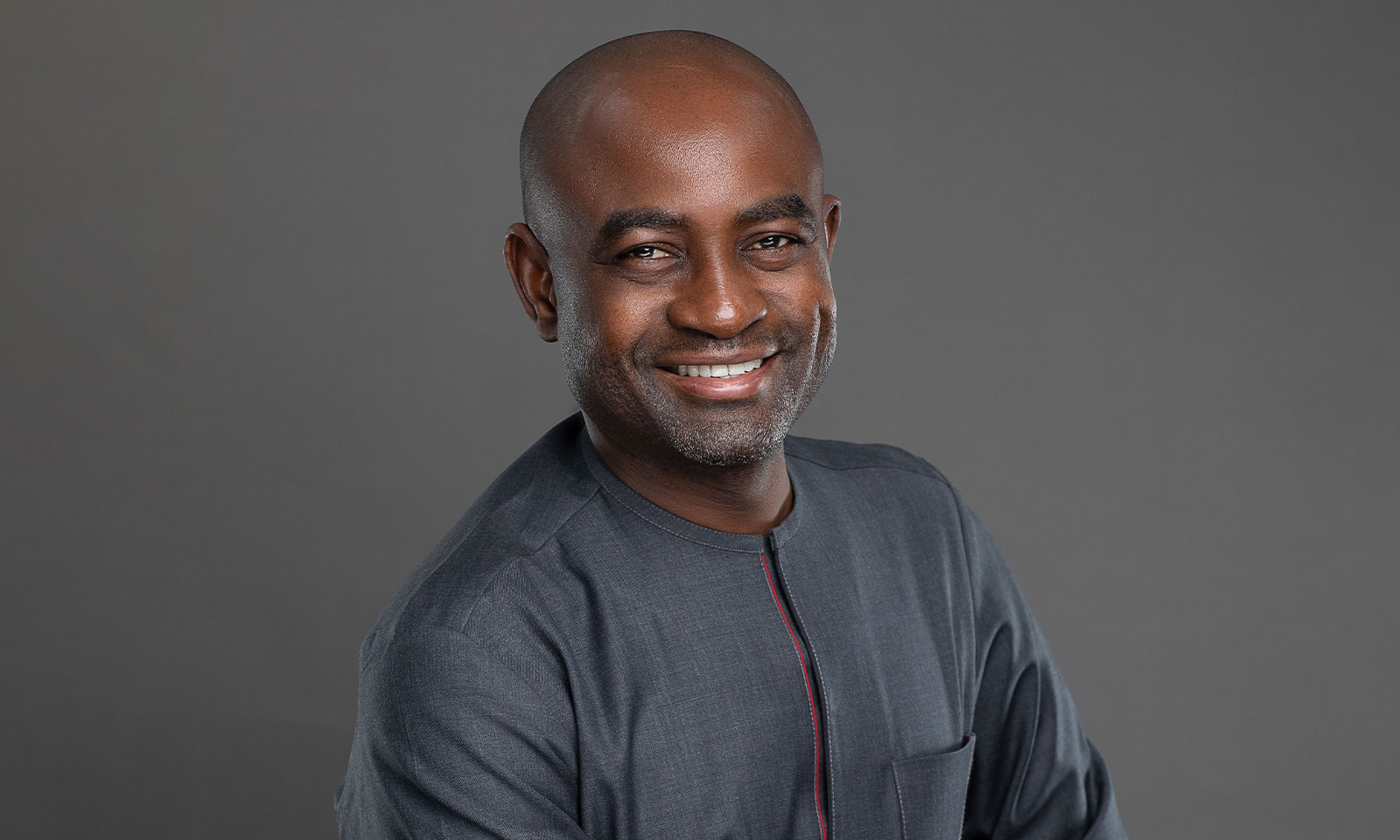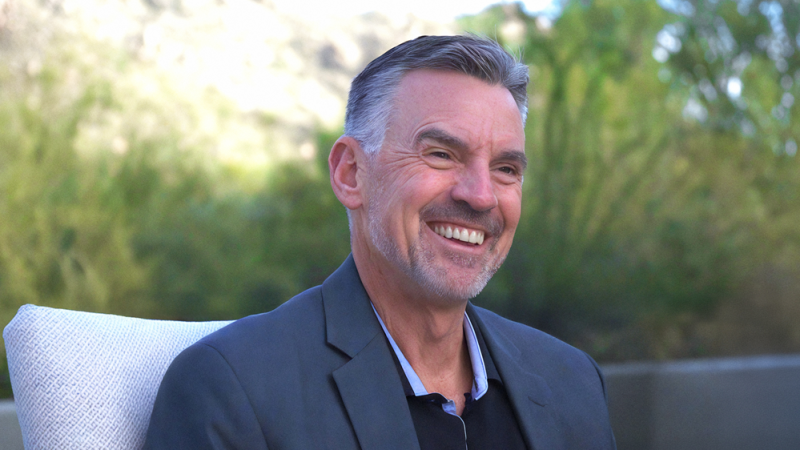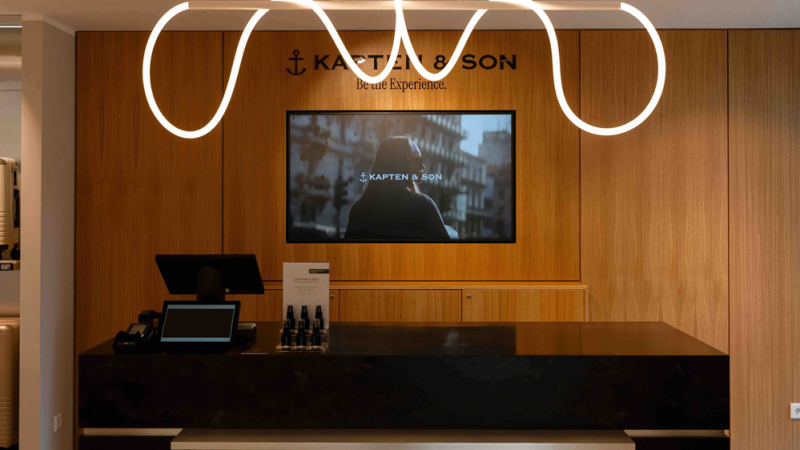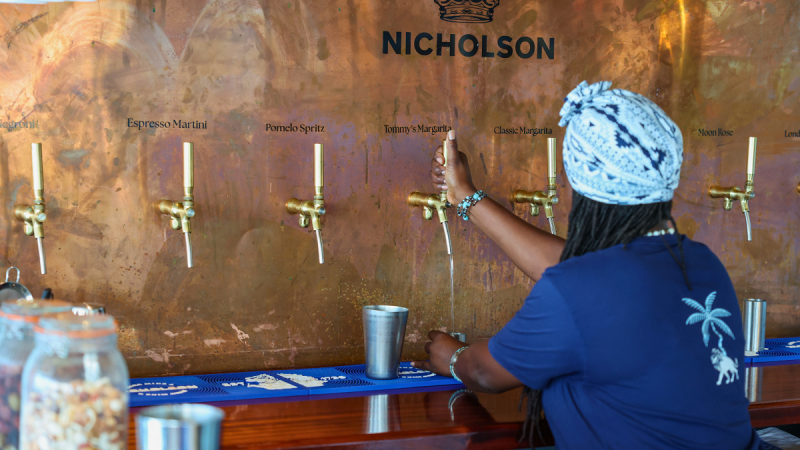If you walk down a street in Ghana or Nigeria, the chances are you will see one of the 30,000 people who drink Fan Milk products every day. The company boasts the biggest consumer footprint among those communities, selling refreshing, dairy-based drinks for prices as low as 10 euro cents, as it has done for 63 years as a subsidiary of the Danone group.
“From the very beginning this has been a company locked into the realities of local communities, with local insights,” says Yeo Ziobeieton, Fan Milk’s CEO.
Today the business is worth over 130 million euros, employs 2,000 people and has been incorporated in six countries across West Africa.
“As a Danone company we have a mission written into our DNA,” Ziobeieton tells us. “On the one hand, our mission is economic progress. We put a product in the market that we know consumers will love. We build brands to be loved by people so that in years to come we are still relevant. But then, on the other hand, we work with and for the community. For instance, one product we have put into the market recently is a fortified yoghurt. It demonstrates how we ensure our relevance, with a big social and health impact.”
To make the most of that impact, Fan Milk’s approach to distribution is very different from its competitors.
“We have over 2,500 distributors in the region, and that is unique. Most companies will go for an aggregate of around 25 distributors,” Ziobeieton says. “That is because we believe SMEs are the businesses who make a big difference to the economy and the community.”
Ziobeieton points out that each of those distributors employs anywhere between 15 and 50 people.
“So, on one end you see we are putting healthy products into the market, but by design, we touch and empower communities through our distribution model,” he says.
Community-Focused, Globally Aware
By staying close to the communities it serves, Fan Milk has an intimate understanding of the challenges they face, whether they are local, regional, or global. Consumers are feeling the pinch of global inflation imported from markets around the world, they are also becoming increasingly concerned about issues of sustainability, and, most of all, they are facing a cost-of-living crisis.  These are challenges Fan Milk needs to adapt to.
These are challenges Fan Milk needs to adapt to.
“What we see as a local challenge is that people’s purchasing power is becoming more and more depressed through currency instability and inflation while living standards are going down,” Ziobeieton says. “It is up to us to find alternatives to remain relevant but also accessible.”
But at the same time as identifying these challenges, Fan Milk is also identifying opportunities, as its consumers become more global citizens, with appetites for a range of international products, and foreign markets opening all the time.
We listen to the media, to social media and market research,” Ziobeieton points out. “It lets us understand pressure points for consumers, understand their aspirations and propose solutions. Sometimes that is in the form of renovations, sometimes it is in the form of innovations.”
This includes the recent addition of high-quality ice cream to Fan Milk’s portfolio, targeting consumers who want European-level standards of ice cream. It is only the latest in a long line of innovations by the company.
“They are linked to understanding consumer needs,” Ziobeieton says. “Sometimes that just means putting variants of an existing product into the market as consumers look for new flavours- ginger is a big one. That understanding is key to our innovation roadmap.”
A Name to Work With
As well as being a recognised brand among consumers, Fan Milk also has a lot of appeal for potential new employees.
“We have people knocking at the door. A lot of that is due to the brand we have built which is synonymous with quality as a household name,” Ziobeieton tells us. “People are constantly willing to work with us because of our brand, but also because of the culture we have developed here.”
While there is no shortage of applicants, Fan Milk will also be proactive in seeking out specific skills, working with universities and recruitment agencies to provide opportunities to people who can bring the best skills to the company. But recruitment is only the first step of the journey.
“We have several initiatives, ranging from internships to partnerships,” Ziobeieton tells us. “When we have the talent on board, we have annual functional skills assessments and introduce a development plan based on that, which we follow rigorously. What we do is create that sense of belonging to a big corporate family. We send talent to different countries outside of Africa, where they can share the experience they have learned here and learn from best practices from other countries.”
But as well as valuing human resources, Fan Milk also looks to empower them with the latest technology. Fan Milk embraces automation, digitalisation, and the latest developments in the digital space around AI.
“Deriving our decisions from data can only be helpful. So, we have embarked on digitalising many of the processes and disciplines in our business, ranging from the supply chain all the way to sales,” explains Ziobeieton. “If we see the benefit of it, we will continue to drive it, and be one of those companies that help Africa leapfrog and lead the agenda of digital and AI into the near future. Africa has the youngest, most vibrant population, so it is important that digital is part of our business.”
Growing Opportunities
Ziobeieton is optimistic about the future of Fan Milk, and plans for the company to continue to be one of the fastest-growing companies in the sector.
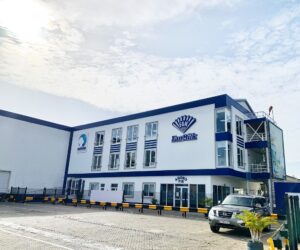 “We want to almost double the number of people we sell to daily. We want to grow our footprint from 2,500 to 5,000,” Ziobeieton says.
“We want to almost double the number of people we sell to daily. We want to grow our footprint from 2,500 to 5,000,” Ziobeieton says.
But while growth is good, fundamentally Fan Milk’s priority remains supporting the communities it is part of. That is why Fan Milk is championing an agenda of local sourcing, working together with the local government to construct a big, locally sourced value chain. It is also reflected in Fan Milk’s sustainability measures.
“We have been investing in an environmentally friendly set-up, including wastewater treatment in Ghana and Nigeria,” Ziobeieton tells us. “A test I put to my team for the water we put out there is, if fish can live in it, it will be clean enough. From an energy point of view, we are investing in green energy such as solar panels, which we have equipped on most of our sites, and a biomass boiler to replace energy from the grid and from diesel.”
This is not just about altruism; it is about business.
“We are doing it for the planet but also for economic reasons,” Ziobeieton insists. “I am a firm believer that if it is good for the planet, it must be good for business for it to be sustainable.”
